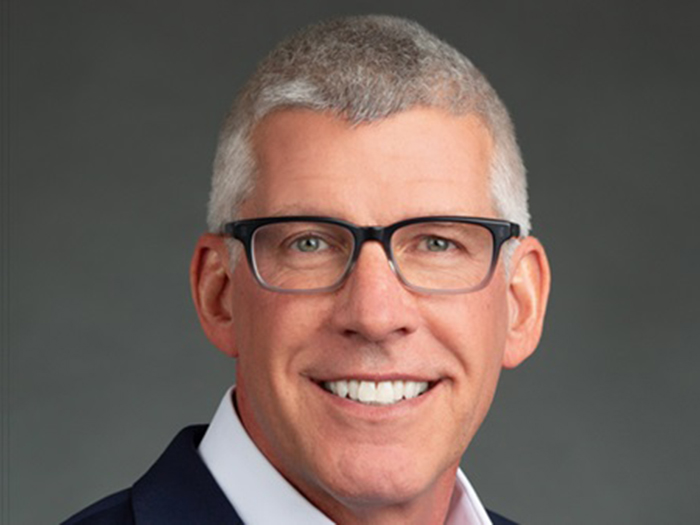Empowering Frontline Risk Professionals to Address Compliance Challenges

Adjusters, case managers and bill review analysts take on an important role in the risk management profession: They work directly with the people they serve, from injured workers and accident victims to policyholders and medical providers, and more.
It’s an important job, because these frontline risk professionals are often the ones bringing key information to the table. They fulfill essential roles, from explaining to an injured worker how the process will work to setting up medical visits on their behalf.
Frontline risk professionals need to be on top of their game. Compliance with rules and standards set in place by their organizations and state laws is paramount.
“Compliance is an essential part of the job for these professionals. It not only contributes to maintaining operational integrity, but it also keeps claims moving forward and all parties on the same page,” said Brad Fauler, compliance director for CorVel.
But what happens when there might be compliance challenges?
“The key thing is to be proactive rather than waiting until something is on fire,” Fauler said.
That includes giving frontline risk professionals the space to come forward and speak up when compliance issues arise.
The Biggest Compliance Challenges

Brad Fauler, compliance director, CorVel
Perhaps the biggest challenge that exists in terms of compliance is stagnation.
“The primary challenge frontline individuals face is the mindset that their current practices, whether learned through training or established company policies, are correct. They often assume that the way things have always been done is the right way, leading to a hesitancy in questioning existing procedures,” explained Fauler.
He said it can persist even in spite of notifications from state agencies, like the Department of Insurance or workers’ comp boards, indicating potential compliance issues.
Past experiences will also impact how a frontline risk professional views compliance issues: If they’ve experienced different practices at previous companies, they may be reluctant to question the procedures of a new employer.
This can lead to compliance issues that have a negative impact on overall operations — something nobody wants.
“Employees may worry that speaking up or questioning current practices will require them to do more work if the current method is indeed incorrect,” said Fauler. “They may also fear that the person who trained them or the training department could get in trouble for teaching the wrong approach or allowing it to continue for years.”
That’s why it’s so important that frontline risk professionals feel empowered to speak up when compliance is not being met.
“Empowerment will extend beyond compliance issues. Employees who have gone through the process of operational change, effectiveness, and continuous improvement feel more confident in speaking up about other issues that benefit the organization, such as identifying bottlenecks or inefficiencies in workflows.
“By fostering a culture where employees are willing to speak up about compliance and other matters, you create a team of individuals who understand the importance of change management and continuous improvement. This, in turn, contributes positively to the organization as a whole,” Fauler said.
Empowerment Starts with These Three Things
1. Communication
Visibility and being approachable are critical when it comes to empowerment. Frontline employees who know their concerns will be heard — and followed up on — are more likely to come forward in the first place.
“The key is to create an environment where employees feel comfortable approaching decision makers with their concerns. It’s crucial to hear them out and express appreciation for bringing up the matter,” Fauler said.
He also said to meet employees where they are. In today’s remote work environment, conversations on instant messaging platforms like Teams or Slack are often the place employees feel most comfortable speaking up.
“People are more comfortable bringing up compliance issues or concerns in informal settings. It’s important that when someone brings up an issue this way, we express gratitude and set aside time to discuss and resolve the concern, instead of directing them to a compliance mailbox,” Fauler said.
2. Transparency
Sometimes, frontline staff may hesitate to bring up issues due to fear of backlash from upper management. Some may even request confidentiality.
According to Fauler, providing a layer of transparency can help these individuals through the process and further encourage compliance: “I always ask if they’re interested in being part of the solution. This could involve helping to train others on the issue, testing system enhancements to ensure compliance, or contributing to workflow changes,” he said.
“By involving them in the solution, it shows we’re seriously addressing their concerns without mentioning them by name.”
It also shows frontline risk professionals that their organization is taking them seriously and that their concerns aren’t being ignored or swept away quietly.
“Asking those who raised the issue to own part of the solution is significant,” Fauler said. “They know their concern was heard, and they have satisfaction of being part of the solution.”
3. Culture
“Empowering frontline staff is crucial for any organization looking to foster a strong, positive culture. The key here is to trust your employees and give them the autonomy to make decisions,” Fauler said.
This means providing employees with the necessary tools, such as continued training, to support their day-to-day responsibilities. Establishing a workplace of open communication sets up a culture of trust that any issue will be heard.
Recognizing and rewarding employee efforts toward compliance will also bolster the overall compliance culture: “Celebrating both individual and team successes shows a level of appreciation for their hard work and dedication,” said Fauler.
“This reinforces the importance of their contributions to the organization’s overall success.
Empowerment in Action
Empowerment is more than a feeling of doing good or right by the company; empowerment enables effective change for everyone involved.
Case in point, after a West Coast state implemented a new rule that created significant work at the local level, one team felt unsure of their next steps, according to Fauler.
“They brought their concerns to the compliance team, which, upon review, was able to identify that an East Coast state had the same regulation,” he said.
The blueprints for implementation were there, and the West Coast team quickly applied the new regulation with minimal disruption.
“If they hadn’t brought up their concerns, or even if they didn’t feel empowered to speak up about it with the compliance team, they might have implemented it incorrectly or ineffectively,” said Fauler.
Ways to Effectively Train Frontline Risk Professionals
As many initiatives, empowerment starts with training frontline employees on how to address their concerns. Training is such a vital tool for organizations to get the word out to their team and provide effective communication on how situations on compliance are handled.
“Compliance resources and training materials should be readily available and seamlessly integrated into core systems,” Fauler said. “By integrating training directly into the workflow, employees can learn and apply new skills in real-time, enhancing their performance and productivity.”
These trainings and resources act as an ongoing support system for frontline risk professionals, so that if a question on compliance arises, they have the guidance they need.
And if the issue goes beyond the training available, they will also have the tools necessary to speak to the compliance team or their managers about the best next steps.
“Training not only fosters a culture of learning and development; it also shows that the organization is dedicated to getting compliance right. Employees should be encouraged to acquire new knowledge and skills to not just be compliant, but to also help injured workers and drive innovation and success,” Fauler said. &










